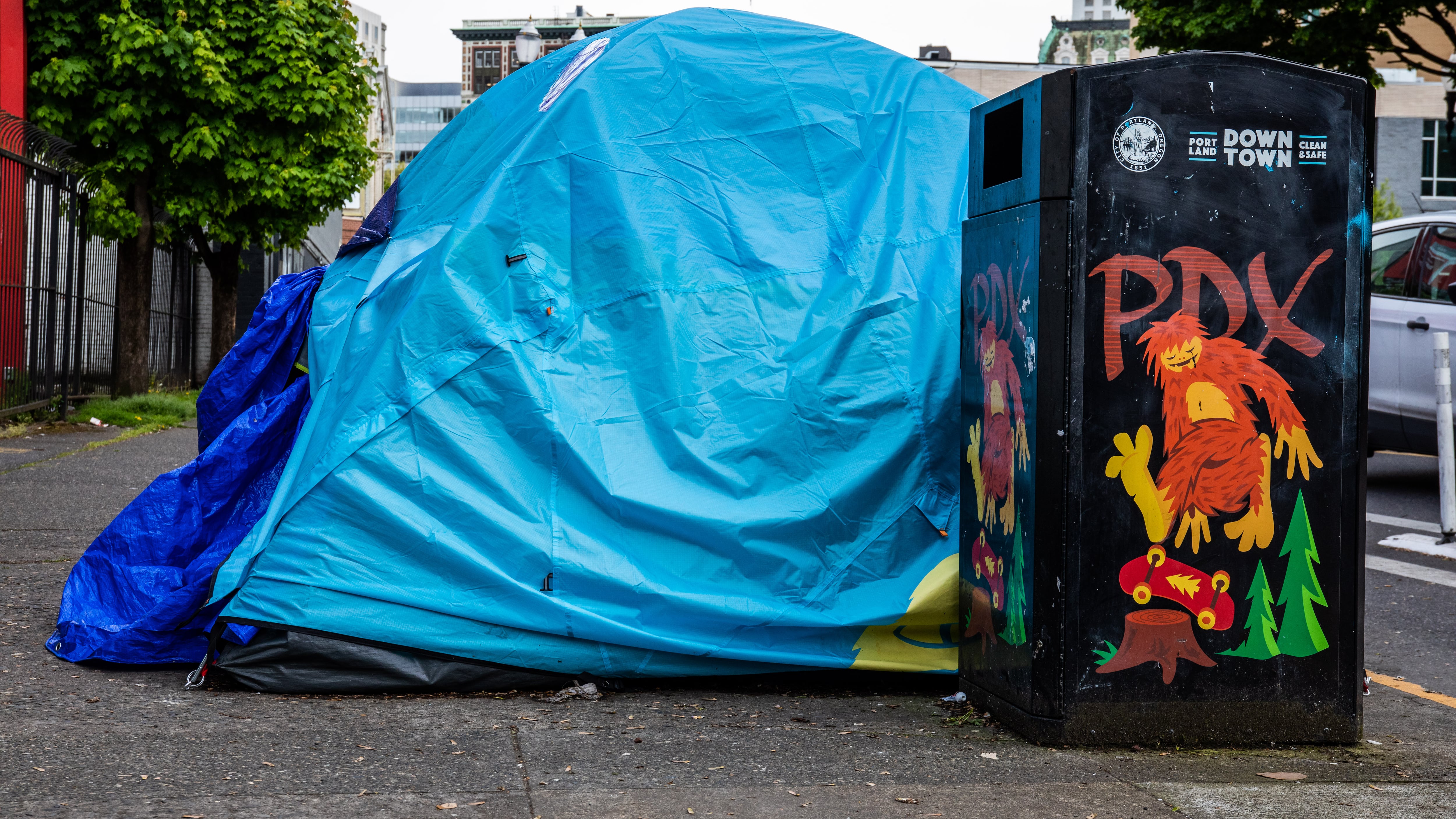A Multnomah County circuit judge ruled Monday that lawyers for Metro, the Portland area’s regional government, were correct in ruling that an initiative from the advocacy group People for Portland aimed at reallocating hundreds of millions in tax money for homeless services could not be put on the ballot in November.
People for Portland had filed two look-alike initiatives with Metro this year. Metro attorneys rejected both on the grounds they violated the Oregon Constitution’s requirements for citizen initiatives. Both sought administrative changes, not legislative ones, Metro said, and neither contained the full text of Metro statutes that would be changed if the initiatives passed.
Circuit Judge Stephen K. Bushong agreed with Metro on one point, disagreed on another, and cited a third that supported blocking the ballot measure.
“Metro erred in concluding that this initiative petition proposes administrative, not legislative, changes to the Metro Code,” Bushong wrote. “However, Metro correctly concluded that the petition does not comply with the full text requirement of the Oregon Constitution. In addition, the court concludes that the petition proposes changes to the Metro Code that exceed Metro’s constitutional home rule authority.”
The full-text law in the Oregon Constitution requires initiative writers to include the full text of laws that the initiative seeks to change, no matter what the length. The same law tripped up campaign finance reformers led by Honest Elections Oregon earlier this year when they sought an initiative to limit campaign spending at the state level.
Advocates for Metro’s homeless services measure, which is expected to raise about $250 million a year through a tax on wealthy taxpayers in the three metro-area counties, said they were thrilled with Bushong’s decision.
“The ruling today is a win for people experiencing homelessness and our entire community,” HereTogether and the Coalition of Communities of Color said in a joint statement. “People for Portland’s political antics have been an intentional distraction from the real work happening on the ground right now to end our homeless crisis.”
Metro lauded the ruling, too.
“We welcome the decision by the court,” said Metro spokesman Neil Simon in a statement. “In the first nine months of Metro’s voter-approved supportive housing service fund, Metro and our county partners have created hundreds of new year-round shelter beds, helped 730 people out of homelessness and into housing, and supported rent assistance for 2,565 families who are trying to avoid homelessness.”
People for Portland said it is considering more legal action.
“We are very disappointed in this ruling,” the group said in a statement. “It represents a dramatic change in Oregon’s initiative system that will limit the ability of the people to have a say in their government. This is not a victory for Metro. They have only succeeded in silencing voters and defending a homeless crisis status quo that is failing everyone. While we evaluate our legal options, our commitment to ensuring safe shelter for everyone who needs it, and ending the deadly camping on our streets, carries on.”
People for Portland’s initiatives sought to require Multnomah, Clackamas and Washington counties to dedicate at least 75% of the homeless services revenue to emergency shelters until the supply of shelter beds met demand in each county. It also sought to force cities to enforce their own anti-camping ordinances to be eligible for long-term funding from the measure.
Critics of the initiatives said they would have criminalized homelessness by forcing people to go into shelters or face arrest.
The initiatives became a litmus test in primary elections this month. Rene Gonzalez, who beat more moderate rival Vadim Mozyrsky to compete in a runoff against incumbent City Commissioner Jo Ann Hardesty, has said he supports criminalizing homelessness if people sleeping on the streets refuse services and shelter when there’s enough available.

